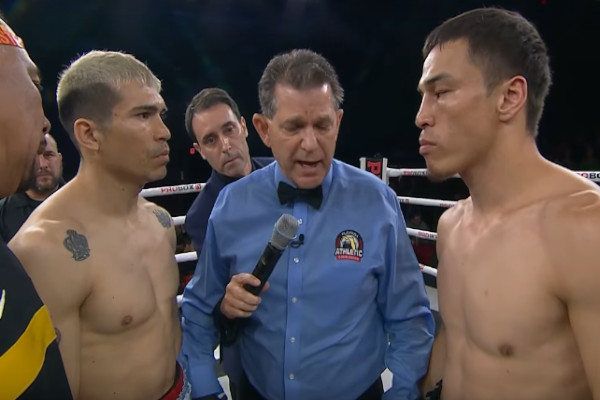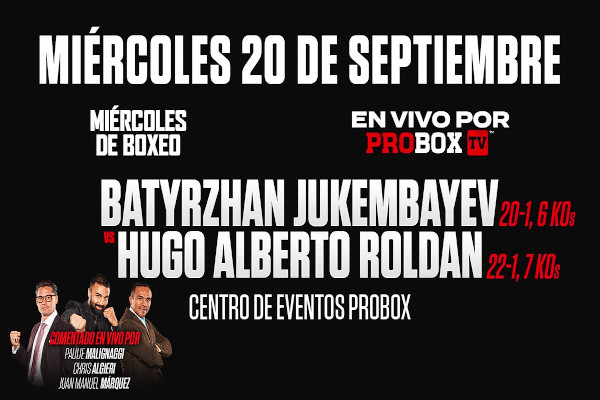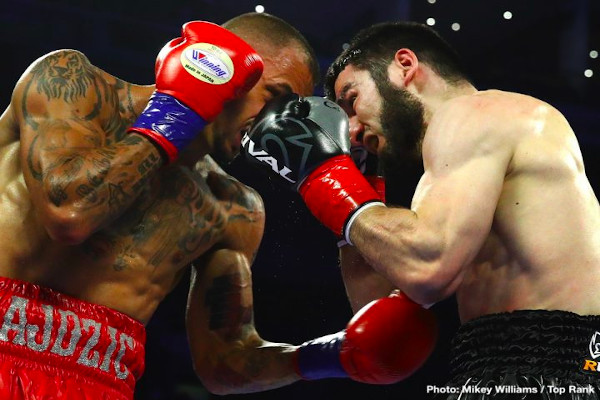Tyson Fury batió por KOT a Dillian Whyte en el sexto round para retener su cinturón mundial del peso pesado
Daniel Pi
@BastionBoxeo
Wembley Arena, Londres, Reino Unido. Campeonato mundial WBC del peso pesado. Segunda puesta en juego del titular Fury
Durante años Dillian Whyte 28(19KO)-3(3) aguardó una oportunidad mundialista que nunca llegaba, asegurando una y otra vez que cuando la obtuviese iba a demostrar su nivel coronándose. Finalmente, este sábado Whyte alcanzó, ante 94.000 espectadores, el mayor combate de su carrera enfrentándose al monarca mundial WBC Tyson Fury 32(23KO)-0-1, contra el cual el aspirante se quedó muy corto. Y es que Fury controló con su boxeo dinámico la pugna antes de sentenciarla con un KOT en el sexto asalto.
Situándose inicialmente como zurdo, Whyte intentó buscar los golpes al cuerpo en directo y hook para tratar de reducir a largo plazo la movilidad de Fury. Por su parte, el campeón se movió y aguardó su momento para sacar secos directos, aunque también llegó con precisos cruzados a la contra aprovechando su ventaja en alcance.
Más allá de la contraposición de estilos, en el primer tercio la superioridad defensiva de Fury marcó la diferencia ante un Whyte que no encontró la manera de situarse de forma regular en su distancia de golpeo. En cuanto a los clinches, estos resultaron tensos y sucios, alcanzando esto su punto álgido en el cuarto asalto, cuando en un agarre ambos se golpearon en la nuca y no pudieron ser separados por el árbitro durante segundos.
En cualquier caso, Fury era quien realizaba un trabajo más eficaz con su desplazamiento, sus acciones elusivas, sus oportunos jabs y sus variados contragolpes en directo, hook abajo, uppercut, etc. Ciertamente, Whyte tenía un cierto nivel de amenaza con sus esporádicos hooks zurdos al torso, pero estaba quedando muy por detrás en las tarjetas y tácticamente hablando era muy inferior a su oponente.
Por ello, era evidente que Whyte necesitaba un éxito decisivo si quería intentar cuestionar el dominio de su rival, si bien fue Fury quien rompió el enfrentamiento de manera definitiva. En el sexto episodio Fury sacó un uppercut diestro que sorprendió a Whyte, quien cayó al tapiz ayudado por un empujón. El boxeador a duras penas pudo levantarse, y cuando lo hizo se desequilibró terriblemente, por lo que el árbitro no tuvo otra opción que, acertadamente, detener el combate.
Tras el combate Fury sugirió que ya había hecho todo lo que tenía que hacer en el boxeo y que este sería su último combate. Obviamente, este tipo de declaraciones las hemos escuchado incontables veces en el pugilismo, y la gran mayoría de quienes han dicho tales cosas han vuelto a combatir más pronto o más tarde. Sea como sea, por el momento Fury ha retenido su cinturón ante su aspirante obligatorio y, antes de que le llegue otra defensa mandatoria, tendrá un año por delante para pensarse si quiere unificar ante el ganador del Usyk-Joshua II, si quiere encarar defensas voluntarias o si verdaderamente ha llegado el momento de colgar los guantes.

Tyson Fury defeated Dillian Whyte by TKO in the sixth round to defend his heavyweight belt
Daniel Pi
@BastionBoxing
Wembley Arena, London, UK. WBC world heavyweight championship. Fury’s second defense.
For years, Dillian Whyte 28(19KO)-3(3) waited for a world championship opportunity, assuring again and again that when he got it he would show his level by being crowned. Finally, this Saturday Whyte reached, in front of 94,000 spectators, the biggest fight of his career against the WBC world champion Tyson Fury 32(23KO)-0-1, against whom the challenger fell very short. Fury controlled the fight with his dynamic boxing before closing it with a TKO in the sixth round.
Fighting initially as a southpaw, Whyte tried to work to the body with straight punches and hooks looking to reduce Fury’s mobility in the long run. For his part, the champion moved and waited for the moment to connect right hands, although he also landed precise counter left hooks taking advantage of his reach.
Beyond the contrast of styles, in the first third Fury’s defensive superiority made the difference against Whyte, who couldn’t find a way to regularly position himself in his striking distance. As for the clinches, these were tense and dirty, this reaching its peak in the fourth round, when in a hold both hit each other on the back of the head and could not be separated by the referee for some seconds.
In any case, Fury was the one who did a more effective work with his movements, his elusive actions, his well-timed jabs and his various counterpunches with straight rights, hooks down, uppercuts, etc. Evidently, Whyte had a certain level of threat with his sporadic left hooks to the body, but he was falling far behind on the scorecards and, tactically speaking, he was far inferior to his opponent.
Therefore, it was clear that Whyte needed a decisive success if he wanted to try to question his rival’s dominance, although it was Fury who definitively broke the fight. In the sixth round Fury connected a right uppercut that surprised Whyte, who fell to the mat helped by a push. The boxer was barely able to get up, and when he did so he was terribly unbalanced, so the referee had no choice but to stop the fight.
After the match Fury suggested that he had already done everything he had to do in boxing and that this would be his last fight. Obviously, we have heard these kinds of statements countless times in boxing, and the vast majority of those who have said such things have returned to the ring sooner or later. Be that as it may, for the moment Fury has retained his belt against his mandatory challenger and, before another mandatory defense, he will have a year ahead to think about whether he wants to unify against the winner of the match Usyk-Joshua II, face voluntary defenses or hang up the gloves.









